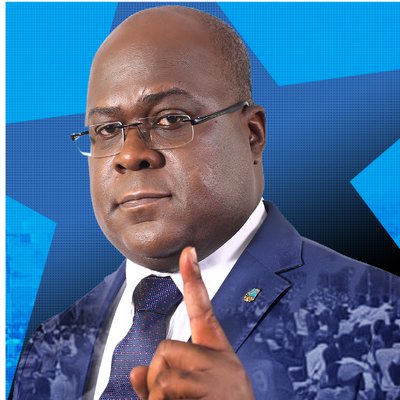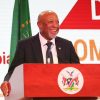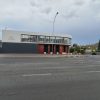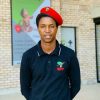
Felix Tshisekedi became president of the Democratic Republic of Congo in January 2019 and promised to pacify the east, the scene of decades of militia violence.
Nearly five years on, peace in the turbulent region remains elusive, with the security crisis a key issue in December 20 polls in which Tshisekedi is seeking re-election.
Here are the main statements and decisions on the crisis made by the president during his first term:
Tshisekedi promises in his inaugural speech that “the pacification of the entire national territory” is his top priority.
While visiting the east, Tshisekedi declares he is “prepared to die to make this peace a reality”.
The military launches an operation to eradicate the Allied Democratic Forces (ADF) group, which the Islamic State group claims as its central African affiliate. The ADF steps up attacks on civilians.
The president proclaims a so-called state of siege in the eastern provinces of North Kivu and Ituri, which comes into force on May 6.
The measure replaces civilian administrators with members of the police and military.
Uganda launches a joint military operation with the DRC against the ADF, first in the northern part of North Kivu province and later extended to Ituri province.
The Rwanda-backed M23 rebel group, which had lain dormant for about a decade, launches an offensive in the southern part of North Kivu.
The Congolese government contracts two private military companies, Agemira RDC and Congo Protection, to help curb the advance of the M23.
Together, the two companies employ about a thousand men. Most of the troops are from eastern Europe, and the managers from France.
Troops deployed as part of an East African Community (EAC) regional force begin to deploy in eastern DRC, in a bid to bring peace to the region.
During a visit to Botswana, Tshisekedi criticises the EAC force for “cohabiting” with rebels.
The day before, the Southern African Development Community (SADC) announced that it would deploy forces to eastern DRC. This deployment has not yet occurred.
Tshisekedi tells the United Nations General Assembly that UN peacekeepers deployed in his country since 1999 have “not succeeded in dealing with rebellions.”
The president insists on an “accelerated withdrawal” for the peacekeepers from December. About 14,000 UN troops are in DRC.
The president and several government members acknowledge for the first time that armed groups and “volunteers for the defence of the homeland” are acting as auxiliaries to the army in its fight against the M23.
Tshisekedi announces a “gradual and progressive easing” of the state of siege in North Kivu and Ituri.
Kenyan troops deployed as part of the EAC force begin to withdraw from eastern DRC, after the government fails to renew their mandate.
bur-at/ah/eml/kjm
AFP
(NAMPA / AFP)










